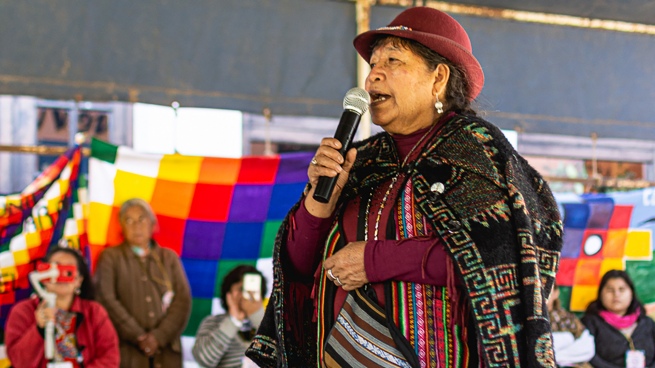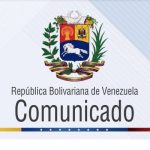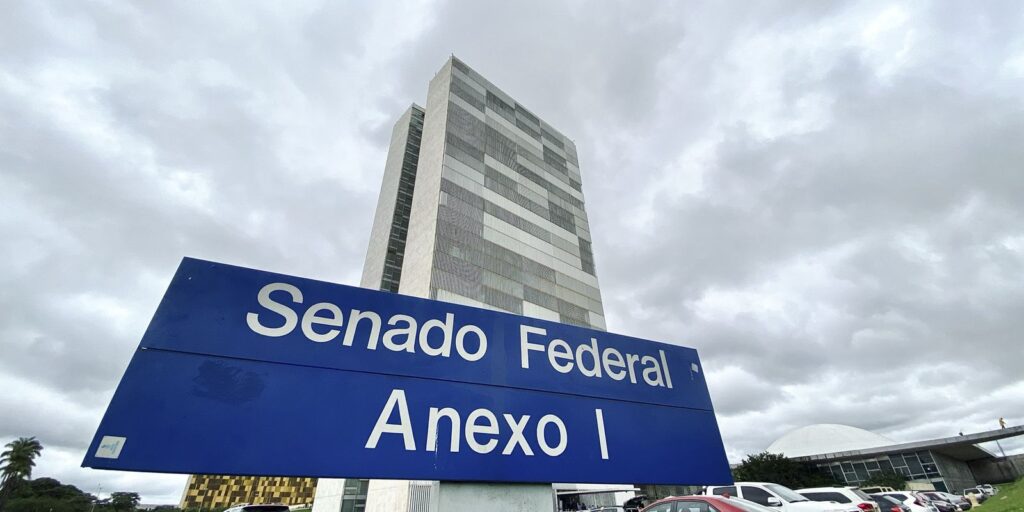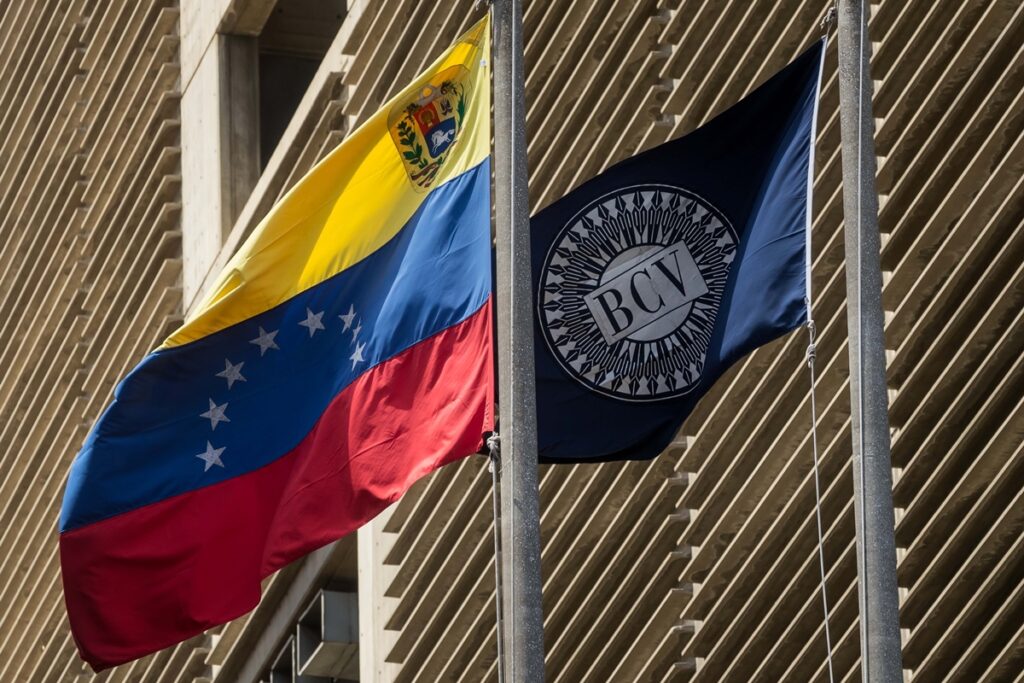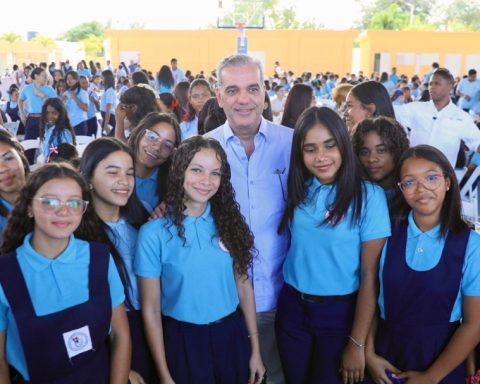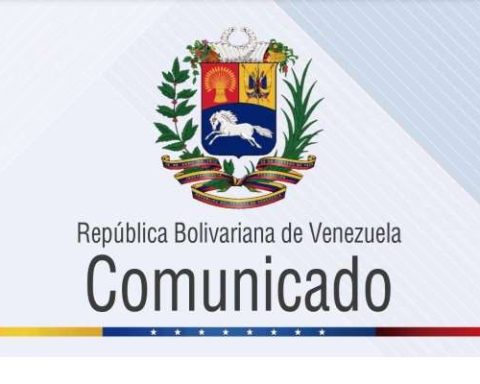The Third Parliament of Women and Indigenous Diversities that was held until this Wednesday in Chicoana, province of Salta, agreed on urgent actions against racist gender violence and will present on Friday, June 3, joining the mobilizations of “Not one less”, a “demanding” to the Argentine State to end the violations of girls, women and indigenous diversities.
After three long days of exchanges, some 250 women from 21 nations and indigenous peoples They decided by consensus to take a series of measures aimed at putting an end to abusive and violent practices based on gender and discrimination, which they described as “colonial”.
“On 3J we march against violence and to say enough to the Chinese”assured the trans women and transvestites gathered in plenary, after having spent all Tuesday morning sharing their experiences and those of other women and girls who live in indigenous communities and have been victims of rape and sexual abuse.
The Movement of Indigenous Women for Good Livingorganizer of this meeting that took place in a rural school in the town of Chicoana, located about 40 kilometers south of the city of Salta, has been working to raise awareness and make visible the “chineo”, which they describe as “hate crime against our indigenous girls and boys”
As explained by the Movement, “the “chineo” is not a cultural practice but a colonial systematized practice perpetrated by Creole men towards our communities.” It bears that name because the Spaniards and later the Creoles called indigenous girls “chinas” because of their slanted eyes.
“The word ‘chineo’ does not arise from ancestral indigenous thought, the word ‘Chineo’ belongs to the oppressor, to the invader, to the violating Creole. This word has a racist, misogynistic and genocidal charge”, say the women, who choose to use this term to demonstrate the “racialization” of this type of gender violence.
Talk about violence in communities

The last full day of the Third Parliament of Women and Indigenous Diversities was dedicated to talking about “chineo” and the types of violence suffered by girls and women in the communities, topics often silenced and difficult to express in words. That is why it was decided to work first in six groups, where the women could present their problems and experiences in smaller spaces, and then bring the conclusions to a plenary session with all the participants.
There appeared the deep pain, the crying, the rage, the impotence. In one of the groups “it emerged that most of the women we were there had been raped as children”. Many of them recounted the abuses they suffered from white men as well as from others in their communities and within their own families.
They spoke of the difficulties that girls face to get to schools that are far from the communities and many times they have no other way to access them than to walk long distances to go to study. “They come to school from afar, they grab them, take them, rape them, kill them,” denounced a Guarani woman.
During the group exchanges, they remembered the case of the teacher Evelia Murillo, who was murdered on October 3, 2014 in the school-shelter of the mission wichi El Bodabalin the north of Salta, for defending a young woman from a rapist, who ended up killing the teacher with a shotgun blast to the chest.
They also denounced the complicities that often occur within the communities, where indigenous men, even within the same families, abuse girls and young women, without these cases coming to light. “We don’t want any more cover-ups, because sometimes he is the longo or the cacique (indigenous authorities) and we don’t want to expose him,” warned a Mapuche sister.
“We need to talk about sexual violence in our communities,” reflected an indigenous transvestitewho assured that “this battle against violence is against sexual violence”, to which another added that “it is sexual violence but also racist violence”.
“In the four cardinal points we suffer discrimination, rape, theft of children”sentenced a Kolla woman who proposed a series of actions to make the problems visible and asked to work to “save our daughters and the next generations.”
Finally, all the women and diversities participating in the meeting agreed on the importance of working together to condemn the different types of violence they suffer and take collective action in this regard, including the #BastadeChineo campaign.
Complexities surrounding the problem of violence

The Mapuche weychafe (warrior) Moira Millána reference for the Movement of Indigenous Women for Good Living, emphasized the multiple complexities involved in “abolishing the colonial practice of Chinese” and violence against indigenous girls and women.
Millán reflected on the inhuman conditions in which the indigenous communities live in the north of the Argentine territory, the lack of water, health, access to schools and protocols in cases of gender violence, among many pending debts of the State with these historically neglected peoples.
Faced with this complex situation, the Mapuche fighter assured that “There is no helplessness, there is genocide” and called for “the abolition of ‘chineo’ and the elimination of the naturalization of these practices”, which “society as a whole has to condemn”.
In this sense, the women gathered in the Third Parliament of Women and Indigenous Diversities evidenced the urgency of demanding that measures be taken to end this type of sexual and racial violence, and for this reason they agreed to take what they called an “exigitorio” to the Argentine State.
The main claims are that a hate crime be declared against the “Chinese”; that it be recognized that it is not a cultural practice but a “systematic colonial practice”; that it be declared imprescriptible; that companies that have rapists among their employees be held responsible and disqualified from working in indigenous territories; that police officers, gendarmes and/or soldiers who rape indigenous women be held accountable, disqualified and dishonorably discharged”.
Another of the demands is that the assets of the rapists be seized and at this point Millán clarified that they do not accept the word “reparation”, because the damage caused by these crimes cannot be repaired. What they demand, instead, is the seizure of the rapists’ assets to assist the victims of violence and carry out prevention campaigns. “We have waited 200 years,” she assured, “this is genocide and we are going to defend ourselves.”
Women and Indigenous Diversities gathered in the parliament that takes place in Salta agree on actions within the framework of the campaign #EnoughChineo
The “chineo” is a colonial practice that consists of “the rape of indigenous girls” and they demand that it be declared a hate crime pic.twitter.com/7lZm3O8SMY
—Telam Agency (@TelamAgency) May 24, 2022
Heal the pain and keep fighting
This Third Parliament of Women and Indigenous Diversities, after those held in 2018 in Ensenada, province of Buenos Aires, and in 2019 in Las Grutas, Río Negro, represented an enormous challenge by bringing together 250 women from different towns and remote communities in Salta in a self-managed way to work on the urgent and deep complex problems that indigenous women and diversities go through.
The meeting not only dealt with the problem of violence, but also addressed topics such as the self-managed economy in the Makers for Good Living workshopthe importance of own communication, together with the Presentes Agency, where different initiatives and community media participated, such as “The indigenous voice”the rights of indigenous peoples and the history of indigenous genocide.
Another very important part of the Parliament consisted of holding ceremonies, with the participation of medicine women from the Aymara and Purépecha peoples, specially invited from Bolivia and Mexico to share moments of spiritual healing.
In this way, the women and diversities gathered in Chicoana participated in different ceremonies, such as the opening to ask permission from the forces of nature and the ancestors; another that was carried out in order to restore harmony with unborn babies as a result of abortions that occur in the communities; the moment of spiritual healing after talking about the sexual violence of which they were victims; and finally, the farewell ceremony, with a circle of reciprocity to close more than three days of intense exchanges, learning and collective actions.
What is Chinese? It is the rape of indigenous children by Creoles. It began with colonialism and it is an abuse that is still in force and unpunished in the north of Argentina and in various parts of Latin America. pic.twitter.com/2tb2hkxTov
— Presents Agency (@PresentesLatam) May 24, 2022
